AGENCY
The
capacity for people to make their own choices.

Strong bond helps couple run successful business
David Bussau reflects on his Opportunity journey
Trek for Opportunity –an inspiring adventure

The

Strong bond helps couple run successful business
David Bussau reflects on his Opportunity journey
Trek for Opportunity –an inspiring adventure
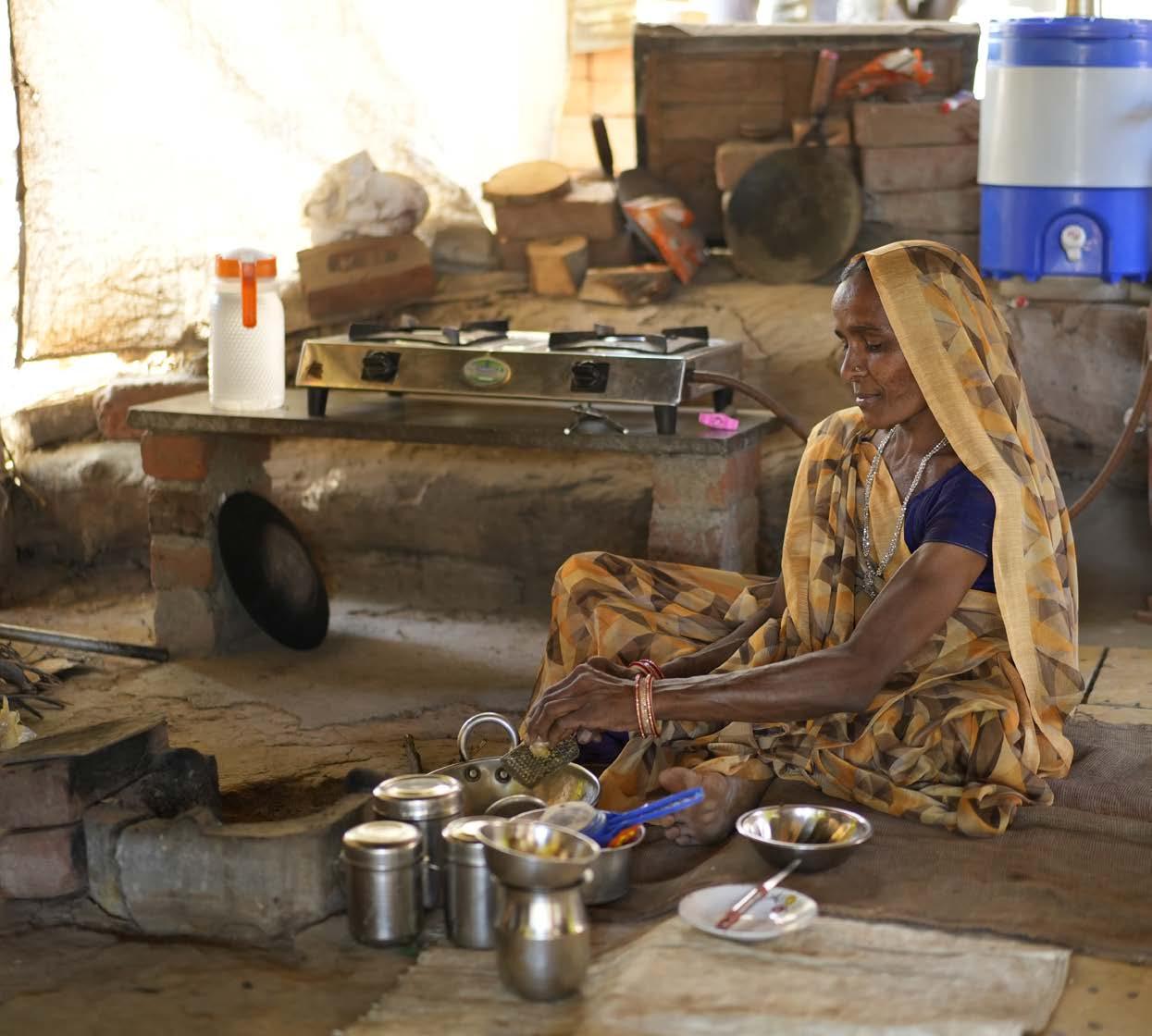
14
On
By
With the help of a small loan, they were able to open a corner shop, giving them independence and a sense of achievement.
Read their story on page 10.
At Opportunity International Australia, we are always looking at ways to improve and to help even more families out of poverty.
We consider you partners in our mission-focused work, so we would love to know more about you, our valued supporters, and we want your opinions on how we operate and communicate with you.
Included in this issue of Agency is a supporter survey. The survey only takes a few minutes to complete, and we would be so grateful for your answers. And as good stewards of our donor funds we know you won’t want an ‘incentive’ voucher to complete the survey – thank you! That means more funds to those in need!
Finally, as we embark on a new year, I wonder how Supanti and her family are starting 2024.
Supanti is an incredibly hard-working mother of three living in Indonesia, but living in poverty, school costs for her boys are still a struggle each year. With the help of a school fee loan, Supanti can pay for her children’s school fees. Read about about Supanti and her family on page 9 in this issue of Agency
So, let me honour you for the part you have played in 2023 in lifting families like Supanti’s in Indonesia and India out of poverty!
With blessings and gratitude,
Scott Walters Chief Executive Officer Opportunity International Australia
As at December 2023 MICROFINANCE
1,430,954 families supported with small loans in Indonesia
More than 50 per cent of the labour force in India is engaged in agriculture, with 86 per cent of people in the sector small and marginal farmers (with up to two hectares of land). These farmers have in the past relied on informal financing, with at least one-third of loan needs for families engaged in agriculture being met by informal lenders.
Women farmers face issues in accessing credit for agricultural businesses due to social norms and gender biases. Further barriers, such as a lack of documentation, limited credit history and poor financial literacy, make it harder for low-income farmers to get loans.
There is a strong need for ethical microfinance providers to develop products for smallholder farmers to allow them to modernise and invest in livestock, technology and equipment. Opportunity International Australia has developed an Agricultural Finance (AgFinance) strategy with local partner Pahal, and specialist microfinance consultancy MicroSave. The strategy will help identify gaps in the market, identify the products small farmers need, and develop and test products for farming families, giving female farmers in particular finance they have previously struggled to access.
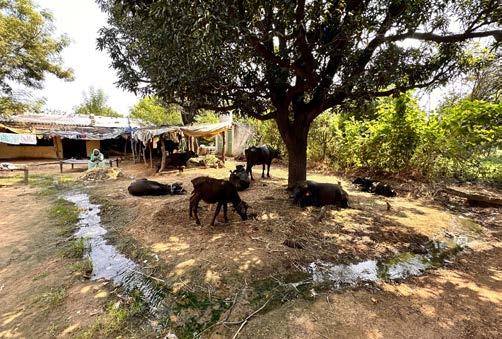
Ninety per cent of Health Leaders demonstrated good levels of knowledge about women’s health topics.
Opportunity International Australia’s local health partner has trained hundreds of new health leaders who are now working in their communities. Health leaders in Jharkhand in north-east India are supporting their local communities with first line health advice and needs. A popular diet supplement in India called Chyawanprash is said to boost immunity, and the Health Leaders have been distributing sachets to families and surveying them on the results. So far they have had a positive response. They have also been able to distribute feminine hygiene products to families in need, allowing them to continue going to school or work without worry or embarrassment.
The health leaders are also using technology to simplify their processes. A mobile app captures information such as referrals to hospitals, teleconsultations, sale of products and other health services.
For women like Pramila living in rural areas, the income she earns as a health leader improves her quality of life. But more importantly, she’s also able to provide vital health support to her community.
“I feel proud of the fact that I have truly helped people,” said Pramila.
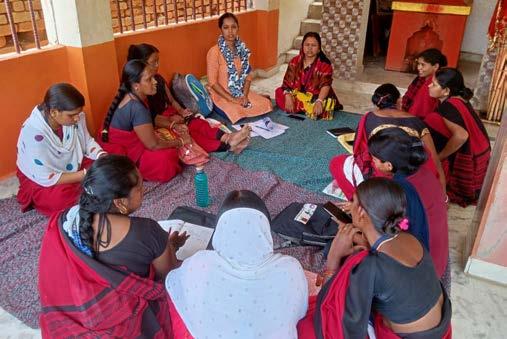
In India, 60,447 people were educated on the prevention of gender-based violence
Across the world, people with disabilities, especially women, are disproportionately affected by domestic violence. As part of the Women’s Safety program, Opportunity’s partner in India, My Choices Foundation, delivered its first domestic violence prevention program for students with hearing and speech impairments.
At a school for students with disabilities, the program was delivered with the aid of a sign language interpreter, reaching those students who may have previously missed out on vital information. These programs will continue to be delivered to other schools for students with disabilities, as the connection to these communities strengthens their rights and helps amplify their voice.
Preventing gender-based violence and educating communities requires a whole of community approach. Men and women are equally as important in the prevention of violence, and My Choices Foundation is in the process of training male Peacemakers to educate men in their communities about healthy relationships and harmful social norms that enable violence. The goal is to have one male Peacemaker per ten communities, working with community leaders to lead that positive change.
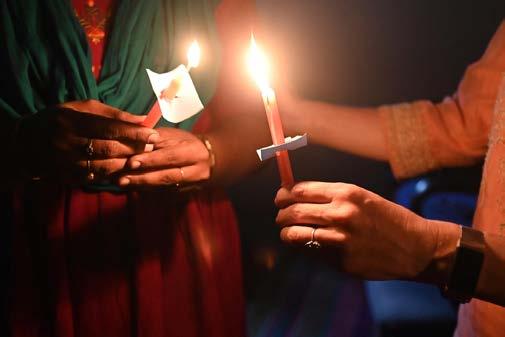
In Pakistan, 6,258 schools have improved their facilities and learning with School Improvement Loans
Opportunity’s EduFinance program in Pakistan continues to improve learning outcomes for students, by providing school fee loans to families and school improvement loans to non-state schools.
“Pakistan is important from an Asia perspective, but from a global perspective it has the second largest education deficit of any country in the world,” said Andrew McCusker, head of Opportunity International EduFinance.
“There is a large share of schools that are non-state and that means there’s an ability for the non-state schools to be actively borrowing to grow their schools and improve their facilities, and it is being driven by household demand for education.
“In Pakistan, which is not the same in every other country that we work in, parents are choosing to make sacrifices in the other parts of their household budget to send their kids to a better school.”
In the past, there has been a large gender disparity in education outcomes in Pakistan, made worse by the COVID-19 pandemic. But with a focus on education access and quality, outcomes for girls in Pakistan are starting to improve.
More girls are able to stay in school in Pakistan thanks to the EduFinance program.

At 83 years old, David Bussau, founder of Opportunity International Australia, is still as passionate as ever about microfinance being part of the solution to ending poverty.

David became one of the pioneers of microfinance when he offered a loan to a farmer in Indonesia named Ketut, who purchased a sewing machine, and with his wife started a tailoring business. This was the beginning of what grew to become Opportunity International Australia today.
David recently shared his reflections on the idea of legacy and what Opportunity has achieved.
Q: When Ketut, the first man you gave $50 to, paid his loan back, did a light bulb go off for you?
David Bussau: It wasn’t a vision that I had, it really was organic. Ketut took a loan, then his cousin took a loan, then someone else wanted a loan, so it just grew organically. It wasn’t a vision I had, and I find that God leads you into things that you hadn’t intended, but it was what he had purposed.
I believe that microfinance is what God had intended for myself and for my family. To be the midwives for that program, to nurture it, to journey alongside it, to help Opportunity to grow into the organisation it is today.
Q: Are you amazed by what has been done over the years? Do you look back and think, wow?
DB: No, I try not to, but I’m astounded by the impact. When I do sit down and just reflect a little bit, I’m just in awe of how successful it’s been, and how widely it is now deployed by most development organisations as an important strategic function of taking people out of poverty. I try not to think about it as my achievement, just that I was an instrument that was used to nurture it to a point that it could have momentum and take off and expand into so many different countries in the world.
I feel that a lot of the stuff that’s been achieved has been ego and self-centredness. ‘Here’s another challenge for you David’. And I’ve had the confidence that I know God is going to provide. I used to say that I hate to dream, because God can make things come to fruition, and I’d say, ‘God I have enough on my plate!’ And he’ll introduce me to someone else, connect me to someone else, and a need will surface out of that meeting, and I’ll take on that challenge. If you see yourself as the vehicle or just the vessel that God’s grace and love flows through, you don’t want to take the credit for it.
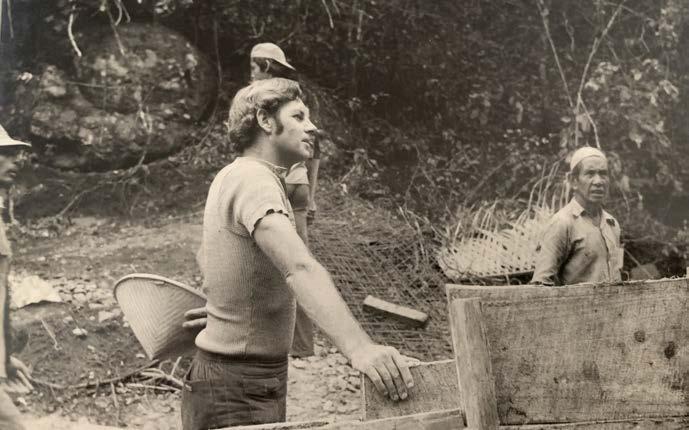
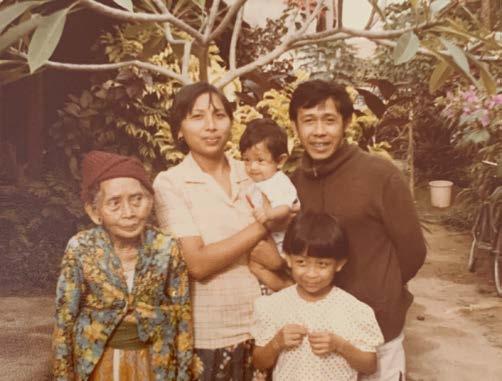

“I see the magic is in being creative and taking a risk and creating jobs and strengthening families and then breathing life into a whole community through the job creation process.”
Q: What do you think is the magic of microfinance?
What is it that’s so special about it and amplifies people’s dignity, strength and agency?
DB: I think it’s like a lot of things. You don’t really know what the impact is until you take that step, take a risk and do something.
What I found with microfinance was that the first step was to accept the risk involved in starting up an enterprise and then knowing that it has the potential to grow and create jobs for others. I see the magic is in being creative and taking a risk and creating jobs and strengthening families and then breathing life into a whole community through the job creation process.
The whole community benefits from stimulating the local economy. That’s the magic, but we don’t often see it, we think the loan and the transaction, that’s the first step, but that’s not the real impact. The real impact is seeing the vibrant community that’s held together with families.
Q: Why is it that giving a loan is better than giving a one-off donation or grant, like a lot of other aid organisations do?
DB: I found that people respond better if you have that relationship with them that you invest in their lives, you’re not giving them charity.
You’re equipping them and enabling them to use resources for their own empowerment and their own development.
With our Opportunity loans, the person repays the loan, they can get a larger loan, then a larger loan again, and it allows that person to grow within their business and within their family and their community again.
Q: Is leaving a legacy important to you?
DB: Legacy is a strange thing. Often wealthy people are concerned about the legacy they’re about to leave. Personally, I have very little interest in perpetuity. I feel that I’ve been given a task to do, and I’ve done that task, and I can pass the baton on to someone else to continue that function, but I’m personally not interested in leaving a legacy because what I find is that whatever I’ve been able to do is because of connections and relationships. For me, the only legacy I want to leave is the quality of relationships that I had, not how many things were achieved, more how they were achieved. The relationship I had with people and those coming to fruition.
One of the things that has been very gratifying for me is seeing the amount of people that have stayed with Opportunity for a long time, for decades, some of our supporters continue to contribute, continue to share their experience and their joy of giving with others. I thank God for those people who have been faithful and committed over the long haul to the effectiveness that Opportunity is having.
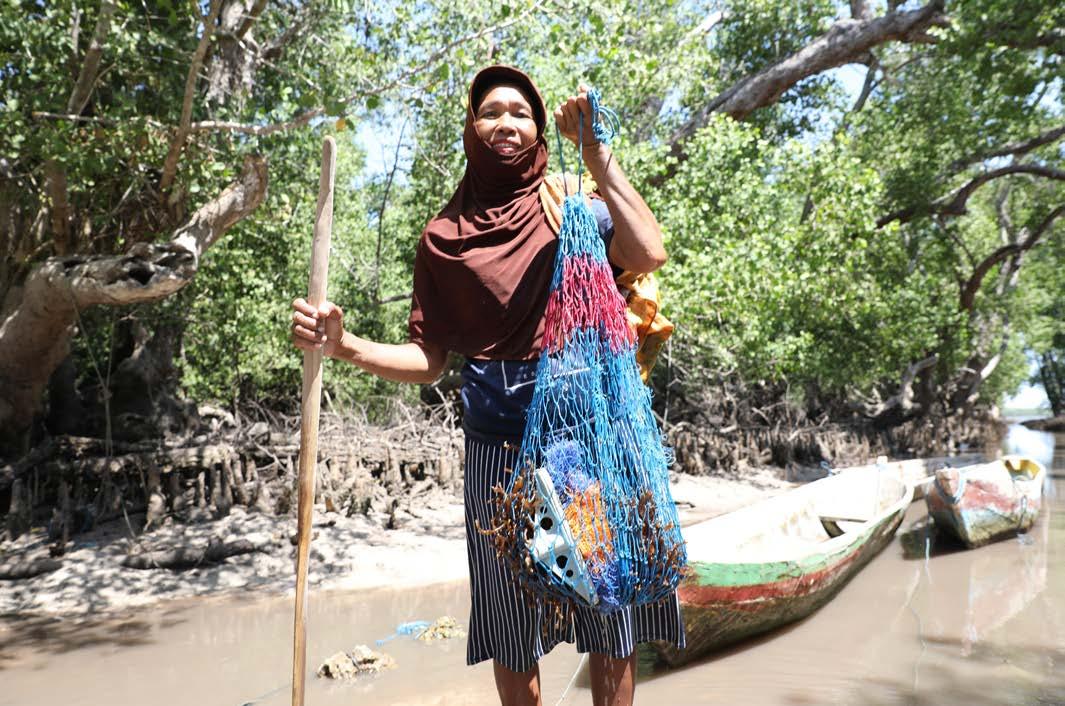
On the remote island of Rote in Indonesia, the options for employment are limited. Aranci, a married mother of five children, and her husband Abraham struggled financially. They couldn’t afford meat, milk or even rice. Heartbreakingly, they also had to pull two of their children out of school before they graduated primary school.
Determined to change things for their family, Aranci started growing seaweed in the waters near her home. Seaweed is a sustainable product that Aranci sells locally to a collector who on-sells to neighbouring islands in Indonesia.
When she started, the farm was small and wasn’t producing enough to provide for all their needs. Her husband Abraham left Rote to seek work on a different island 2,000km away.
With a loan from one of Opportunity’s partners, Aranci was able to expand her business, investing in seeds and ropes.
The farm grew, and so did the family’s income. Aranci began to afford nutritious food for the children as well as school fees. Unfortunately, in May 2023, Abraham’s work dried up, so he returned to Rote and now helps Aranci run the seaweed farm. They hope to expand the farm even further now that it is their only source of income.
Their two eldest children are married and have children of their own. Their middle daughter has graduated high school and has hopes of joining the navy. The younger two children are still in school.
“My dream is to take care of my children so they can continue their studies and get a job,” said Aranci.
continue to learn, thanks to an education
For Supanti and her husband Trianto in Central Java, Indonesia, a school fee loan is enabling their three children to go to school.
Supanti sells fruits and vegetables for a living, while Trianto works as a driver. Their income pays for the family’s daily needs – things like food and household needs. Like many families just making ends meet, the idea of having a large lump sum for school fees to pay at the start of each year seemed near impossible. There simply was not enough money.
“For payments with larger amounts, I often experience difficulties,” said Supanti. “Before [the loan], there were difficulties with the higher amounts of education costs or payments which had a specific time period.”
The family used the loan from Opportunity’s local partner in Indonesia to pay school fees and buy books. Their eldest son Janggan (14) is in junior high, Tristan (8) is in primary school and Rafa (5) is in kindergarten.
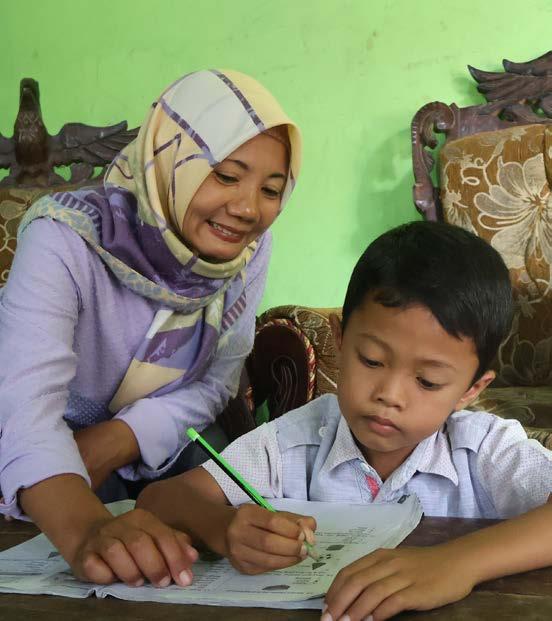
With an education, they’ll be walking into brighter futures, filled with hope and opportunity.
“Children must keep learning at school, whatever their parents’ economic condition,” said Supanti.
“The important thing is that I motivate them to be more successful than their parents. Education is preparing my children’s future.”
Education is a human right and Quality Education is one of the United Nations Sustainable Development Goals (SDGs). Access to a quality education is one of the most powerful tools to improve a child’s future and stop the cycle of poverty.
According to the United Nations, an estimated 300 million children and young people will still lack basic numeracy and literacy skills by 2030.
With school fee loans and improved quality of education through EduFinance, Opportunity is working towards the SDG of Quality Education. Thanks to the generosity of Opportunity supporters, children like Janggan, Tristan and Rafa can attend school and create a future free from poverty.
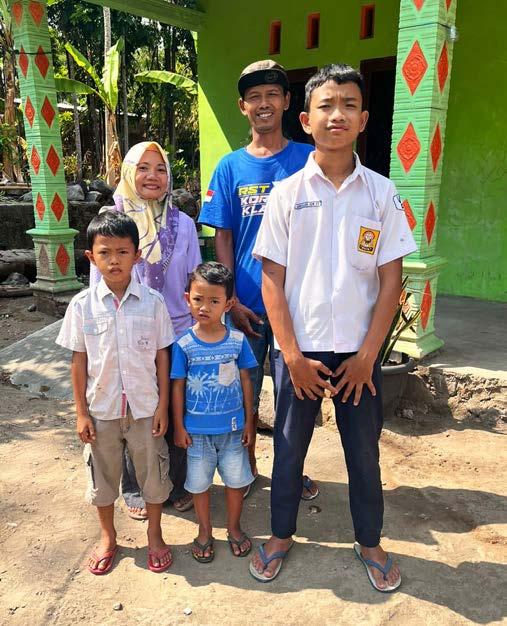
Anjeeta and her husband Vinubhai run a successful snack stall and tailoring business in the Gujarat region in India. The couple, who both have mobility issues, are a wonderful success story, thanks to a loan from one of Opportunity International Australia’s local partners.
“With my first loan I bought a sewing machine and slowly I started sewing and making some money to support my family,” said Anjeeta.”Then we took the second loan to start our corner shop.”
Anjeeta feels a real sense of achievement running her own business, and she shares her dreams for the future.
“I want to be able to pay off my loan and improve my corner shop,” said Anjeeta. “And I’d like to do some improvements around the house.”
Anjeeta and Vinubhai try not to let their disabilities affect their life.
“It does get challenging, I cannot carry water pots on my head, dayto-day life is not easy for us, but we have learned to not complain and get on with life,” said Anjeeta.
“The loan has saved our lives and has made us independent. We are happy and content.”
Anjeeta grew up in a large family that struggled financially. As the fourth child of five, she left school in Year 4 to help with household chores and work.
“Life was difficult as I come from a poor family,” added Anjeeta. “When we got our first loan it made life a little easier.”
Income from Anjeeta’s tailoring business allowed her to repay the loan and then expand that business to the corner shop she now runs with Vinubhai. They work as a team in the shop and enjoy working together.
“We hit the markets first thing in the morning and then get onto some home chores and then the shop,” said Vinubhai. “We have a system.”
“My business is my achievement, it means the world to me to have come this far,” added Anjeeta.
“I have a sense of achievement and it makes me happy that I didn’t give up.
“We are happy and share a strong bond,” added Anjeeta. “Thank you for giving us the loan, this has improved our lives, thank you very much”.
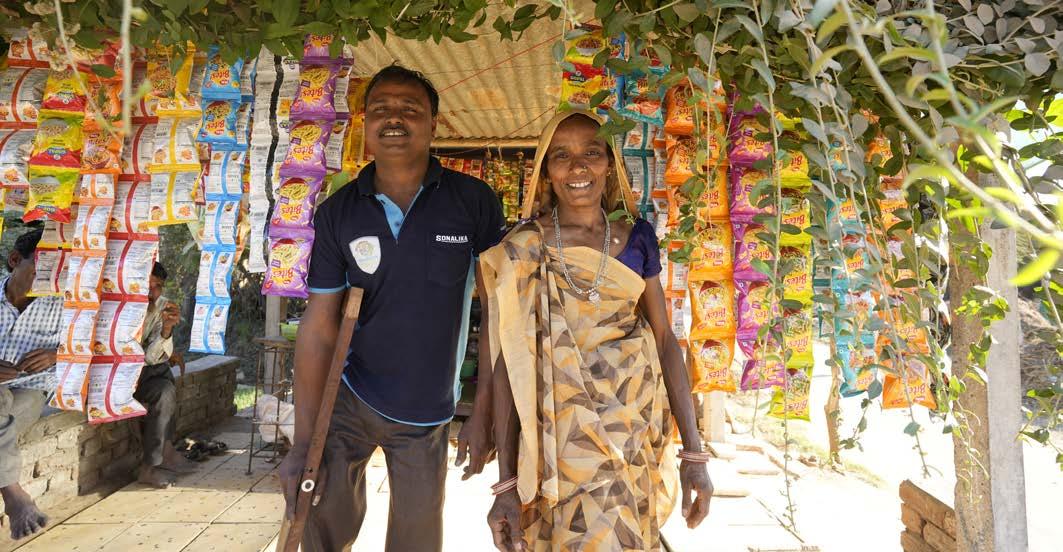
“My business is my achievement, it means the world to me to have come this far.”
Anjeeta
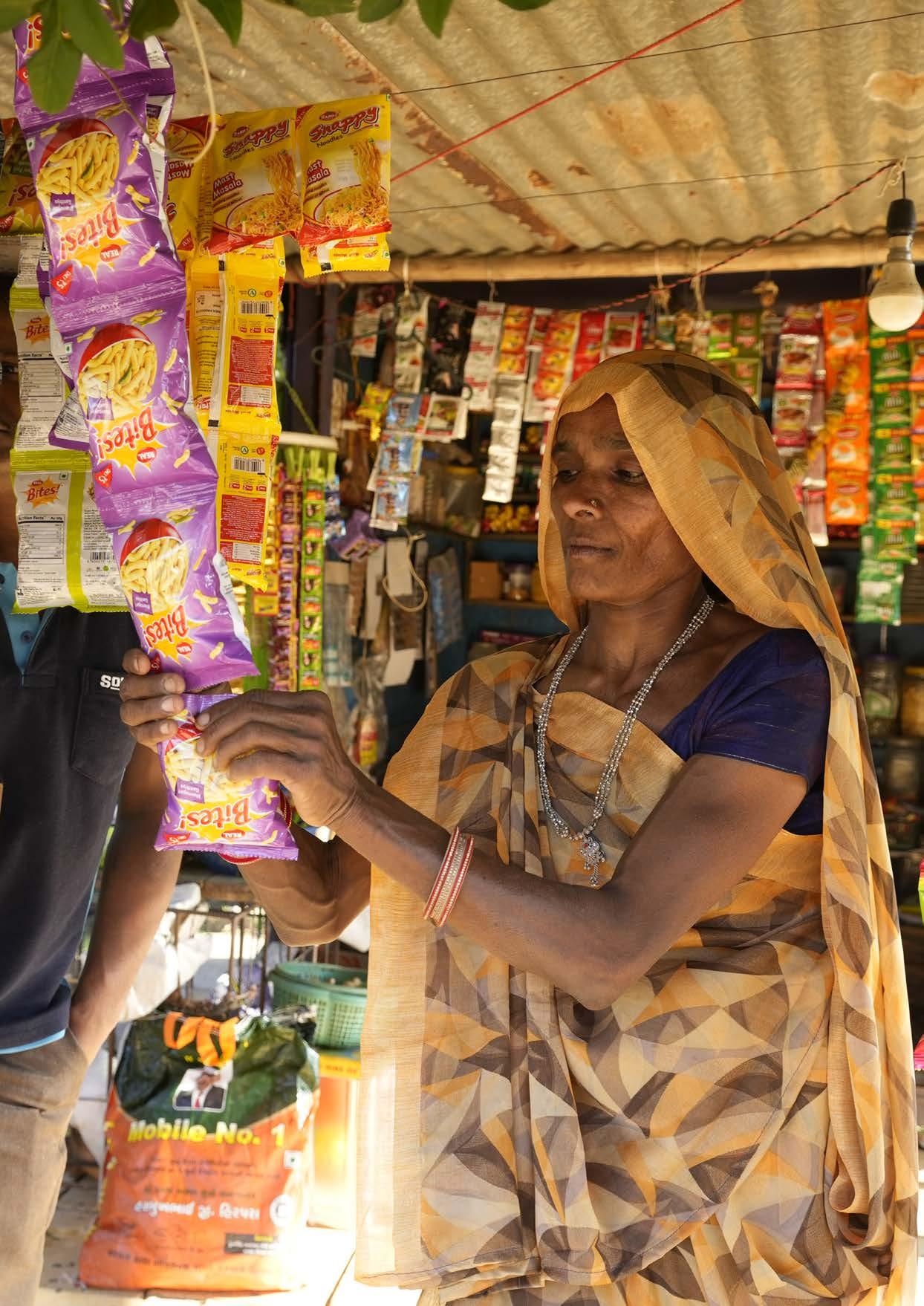

In October 2023, a group of passionate Opportunity International Australia supporters travelled to India for the Trek for Opportunity. As well as hiking from Darjeeling to Sandakphu and back again, along mountain peaks through the majestic Eastern Himalayas, the experience gave participants the opportunity to see the impact of microfinance firsthand.
As part of their adventure, each participant took on the challenge to raise $3,000 each. Most went well beyond the target and collectively fundraised close to $45,000!
For Sydney-based supporter Nomusa, joining the trek was a challenge that ticked a lot of boxes. “For me, it was the physical challenge, something I probably wouldn’t have done by myself. Also, after many years of donating to Opportunity, to have the opportunity to go and see what happens in the field. It’s a combo of the two!”
Jess from Melbourne was excited by experiencing the sights of India and testing her limits. “I actually love a good physical challenge. Five weeks out, I heard about the trip and jumped onboard. I thought what a great way of seeing the Himalayas!”
Assembling in India, the group of supporters, from Sydney, Canberra, Melbourne and Perth, met in Kolkata before starting the trek. After an early flight the next day to Bagdogra, the team made their way via car winding through flat rice fields and tea plantations, before beginning their climb of the Eastern Himalayas.
Shona from Perth was immediately wowed by the breathtaking scenery from day one. “One moment we’re climbing up hills and it’s densely packed, and the next moment, it’s wide open and grassy. It’s just incredible!” Tracking through local village houses uphill, before reaching the forest edge – the team enjoyed a gradual ascent through magnolia and oak trees, before setting up camp overnight in Gurdum, a picturesque, small village overlooking the valleys and villages of Sikkim.
“The support staff are fantastic, particularly the way they’ve set up our tents, food, and they’ve really taken care of us,” said trekker Sumit from Western Australia. “I’ve been very lucky to be able to come to this trek and enjoy this opportunity.”
The climb on the second day was over 1,300 metres from Gurdum to Sandakphu, the most physically demanding day of the trek.
“There’s a shocking amount of uphill,” said Leanne from Melbourne, who joined the trek on behalf of her company, RedZed, a corporate supporter of Opportunity’s. “Obviously that’s the hardest part – trying not to fall behind the pack, but it’s very rewarding. You train hard and try and make sure you’re prepared for the journey.”


After two days of trekking, the team arrived in Sandakphu to the view they had been waiting for.
“You know, it’s that iconic thing of seeing something that you hear about all the time: the Himalayan ranges. Seeing them in the flesh, it’s just hard to express how majestic they are,” said Jon from Canberra, who joined the trek with his wife Salena.
“The most difficult day for us was the second day,” said Salena, who together with her husband Jon, raised over $14,000 for Opportunity.
“It was a longish day, and for me, it was a difficult walk. We were told that the views on the following morning, at sunrise, would be worth it. We set an alarm and got up for sunrise and it was jaw-dropping. I have never seen a view that extraordinary in real life. I mean, it was pretty much what I’d imagine on a postcard. To witness that, and to say I was there, it was definitely the highlight. It was phenomenal.”
After the once-in-a-lifetime experience of watching the sun rise over the Himalayas, the team began their descent along the ridge to Phalut.
A highlight of the day was an impromptu game of cricket against the Indian Border Force at a border checkpoint between Nepal and India.
After crossing over the suspension bridge and essentially the finish line in Sammanden, and a car ride to Darjeeling (for a well-deserved shower!) the group enjoyed a celebratory dinner to toast to completing six days of trekking.
“At 64, getting to the top (3,700 metres) - I wasn’t optimistic for a while, but it was well-worth it,” said Steve, an Opportunity supporter.
“Stunning, breathtaking views. I’ve travelled a fair bit, and that was beyond most experiences I’ve had.”
All smiles and sore legs, the group’s next stop was aboard a train from Darjeeling to Varanasi to see Opportunity’s microfinance work in action.
The team met with some of the women supported by Opportunity - including Soni, who runs a small business in Varanasi. For 10 years, she used to travel from village to village selling glass bangles, carrying them in a basket on her head, making less than a dollar a day.
Then she found Opportunity’s partner Cashpor, took out a loan and set up a shop to sell the bangles. She took out another loan and set up a food stall as well. Soni’s eldest son manages the stall while she manages the bangle store.
“I used to live in a mud hut with a tarp over it, but because of you I have a house, because you gave me a loan,” said Soni.
“We’ve had a chance to discuss a lot of aspects of charity and how it works. I think the thing that blows me away about this work is the infinite impact,” said Salena. “Imagine making a loan today that still helps someone in 100 years, theoretically? That’s just unbelievable.”
The Trek for Opportunity is on again in 2024, from 18-26 October in the Eastern Himalayas. For more information on how you can register for this life-changing adventure, visit opportunity.org.au
Growing up in a rural village in central Java, Indonesia, 62-year-old Kusnidah never finished primary school. Despite her parents’ hard work – her father in the rice paddies and her mother as a housekeeper – poverty meant they couldn’t afford the fees.
Kusnidah married and lived with her husband in a crowded slum in Jakarta. He worked as a driver, while Kusnidah stayed home with their young children. One by one the children hit school age, and the couple found themselves having to make a heartbreaking decision. Their eldest daughter, Ikaniawati, had to drop out of primary school.
“My husband’s income was not enough.”
Meals were simple – rice, vegetable soup, sometimes tempeh. “I couldn’t afford to buy chicken or meat,” said Kusnidah. Clothes were held onto as long as possible, and there was no running water in the house.
“The condition we were in pushed me to do something,” she said.
Having heard about the small loans being offered by Opportunity International Australia’s local partner in her area, Kusnidah applied. She received her first loan – IDR 1,000,000 (A$100) – enough to buy pans and ingredients to grow her own business selling nasi uduk, a savoury rice dish made with coconut milk, ginger and lemongrass.
The family’s income tripled. “I started to earn more money for school, transportation, everything,” said Kusnidah. “I had been in the situation where I struggled to pay school fees, but after [the loans], I was always able to pay them.”
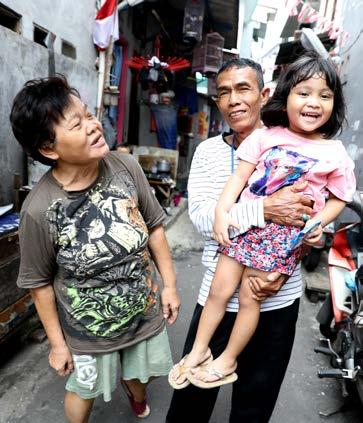
Today, Kusnidah is proud of the business she’s been able to build with the help of a small loan - selling nasi uduk to her community - and the struggles she and her family have overcome.
“I’m proud of the fact that it’s been 30 years since I have been selling food here,” said Kusnidah.
Her son Eeng, who is 32 years old, has since graduated from senior high and works in a factory and as a motorbike driver. He and his wife, Diana, have two children including four-year-old Medina, who Kusnidah hopes won’t face the same hardships as she did. Incredibly, Kusnidah’s youngest son Fauzi is now even in university, where he is studying Sports Science and writing a thesis. “My children’s lives have changed a lot,” said Kusnidah.
Kusnidah beams with pride for her children and grandchildren. “I couldn’t be prouder. My kids always listen to my words. They went to school, it’s mama’s struggle. Dad provides what he has, but mama wants them to go to school and have a good education.”
To support more families like Kusnidah’s and help us see an end to global poverty, for good, consider becoming an Opportunity Waymaker. Your monthly giving can help transform lives for families living in poverty globally.
Left: Kusnidah, her husband and granddaughter Right: Kusnidah’s life has improved thanks to small loans.

Rise up. Make a way. End poverty.
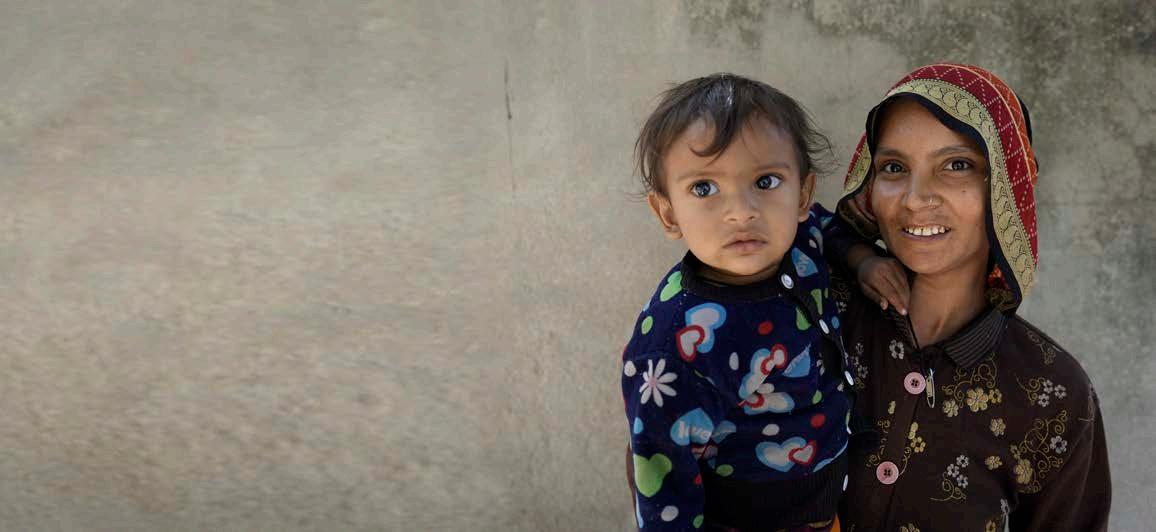
Join the community of Australians paving the way to end global poverty.
As a Waymaker, your monthly giving will help put life-changing tools into the hands of families in need – paving the way for communities to break the poverty cycle for generations to come.
Become a monthly supporter. Visit opportunity.org.au/waymakers
Thank you for your continued generosity
It’s thanks to your support that we have been able to increase our investment in programs that create new opportunities for resilient and hard-working women and families across Asia.
Thanks to you, we have been able to protect and build more businesses, help more children attend school, reach more women and girls with anti-violence and human trafficking awareness and protection, and extend our health program by training more Health Leaders.
With deepest gratitude, and sincerest thanks from the Opportunity International Australia team. On behalf of those we serve.
Opportunity International Australia is an Australian Council for International Development (ACFID) Member and is committed to full adherence to the ACFID Code of Conduct.
Opportunity International Australia receives support from the Australian Government through the Australian NGO Cooperation Program (ANCP).
Opportunity International Australia is a member of the Australian Disability and Development Consortium (ADDC). The ADDC is a network of agencies, organisations and individuals with an interest in disability-inclusive development within Australia and internationally.
“I have been supporting Opportunity InternationaI Australia for the last 20 years, and have been a monthly giver for the last two years. As a retired investment adviser, I am determined that my giving dollar be well directed. I am still persuaded that microfinance, when done well, is one of the more effective tools to tackle extreme poverty.”
Keith Attwood, Opportunity Waymaker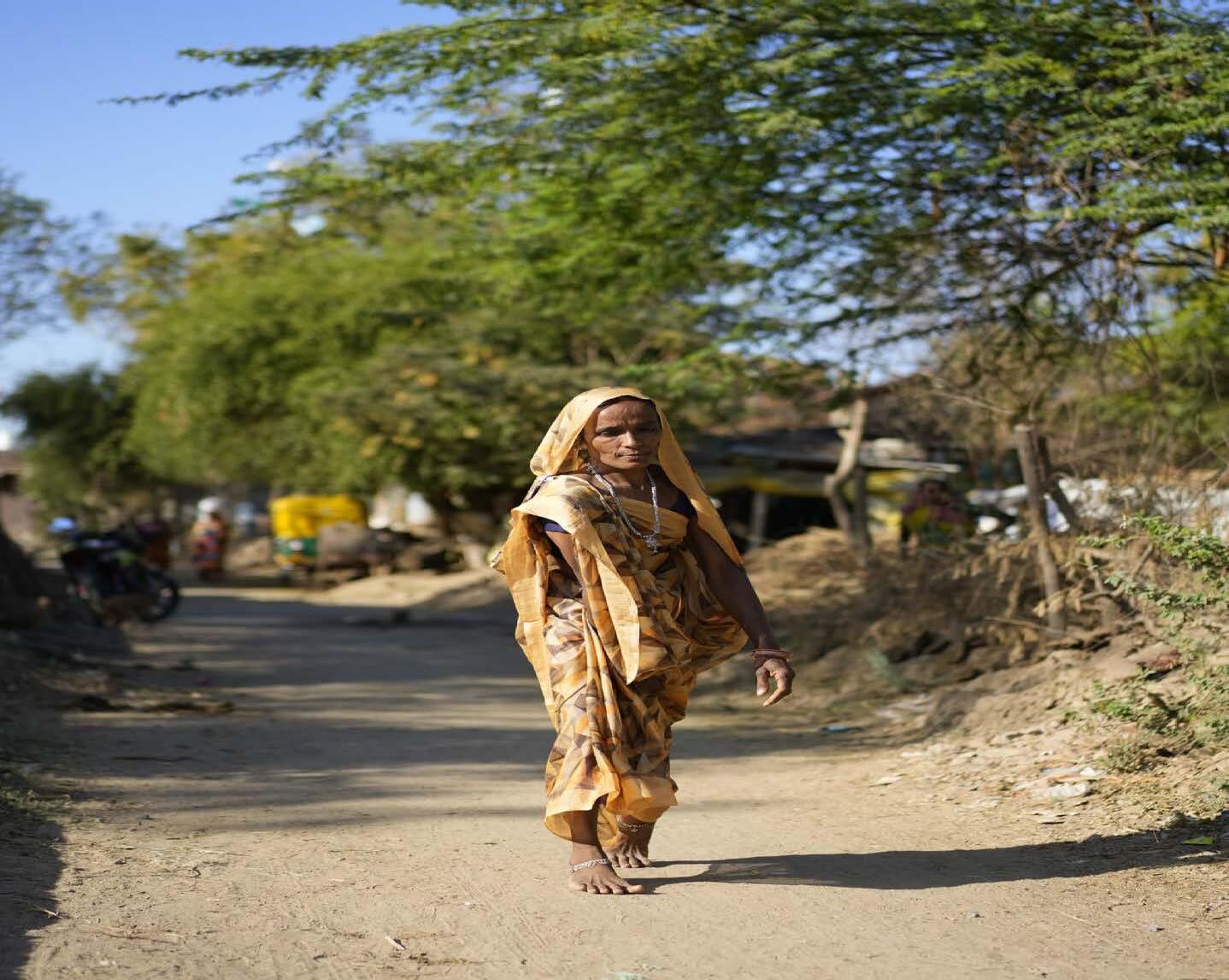
Opportunity International Australia Limited
ABN 83 003 805 043
PO Box A524 Sydney South NSW 1235 Australia
T: 1800 812 164
E: opinfo@opportunity.org.au opportunity.org.au
facebook.com/OpportunityAUS
instagram.com/OpportunityAUS
twitter.com/OpportunityAUS
linkedin.com/company/OpportunityAUS